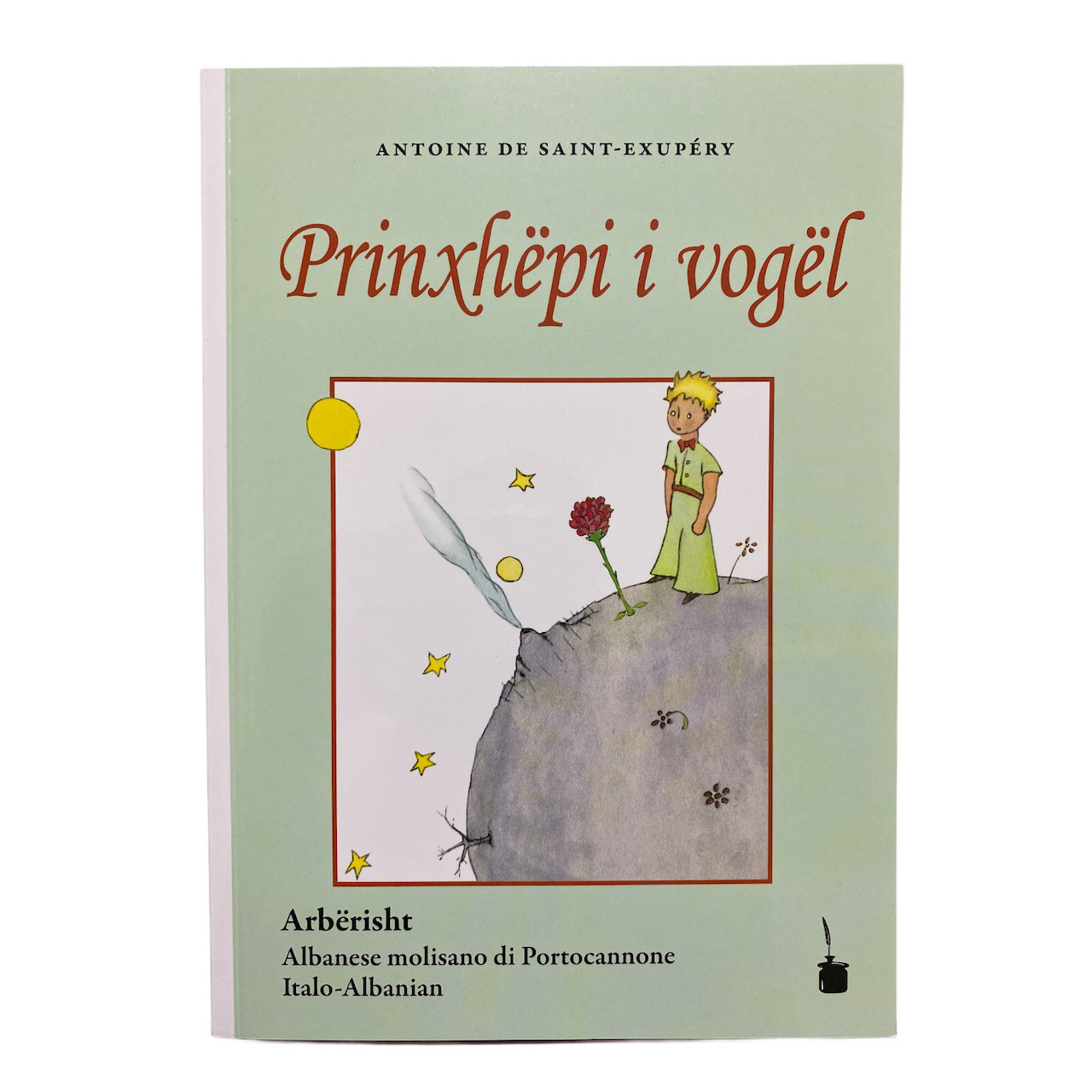
Prinxhëpi i Vogël — in Arberesh languange.
The Arbëreshë dialect, or Arbërisht, is a variant of the Albanian language spoken by the Arbëreshë people, an ethnic and linguistic minority in Italy. The Arbëreshë community is descended from Albanian refugees who fled the Ottoman invasions of the Balkans between the 14th and 18th centuries. They settled in various regions of southern Italy, as well as in Sicily and Calabria, where they have maintained their distinct language, culture, and traditions for centuries.
Arbëreshë preserves many archaic features no longer found in Standard Albanian, making it a valuable resource for studying the historical development of the Albanian language. While it retains a strong Albanian base, the Arbëreshë dialect has been influenced by Italian and local dialects in the regions where Arbëreshë communities are located. This includes loanwords and some grammatical structures.
There is considerable dialectal variation within Arbëreshë, reflecting the different regions in Italy where the Arbëreshë settled and the influences of local Italian dialects. The Arbëreshë dialect is recognised as a minority language in Italy, and there are efforts at various levels, from local to national, to promote its preservation and teaching. The Arbëreshë dialect is not just a means of communication but also a carrier of the Arbëreshë people’s rich cultural heritage, which includes unique traditions in music, cuisine, clothing, and religious practices that differentiate them from both mainstream Italian culture and that of contemporary Albania.


